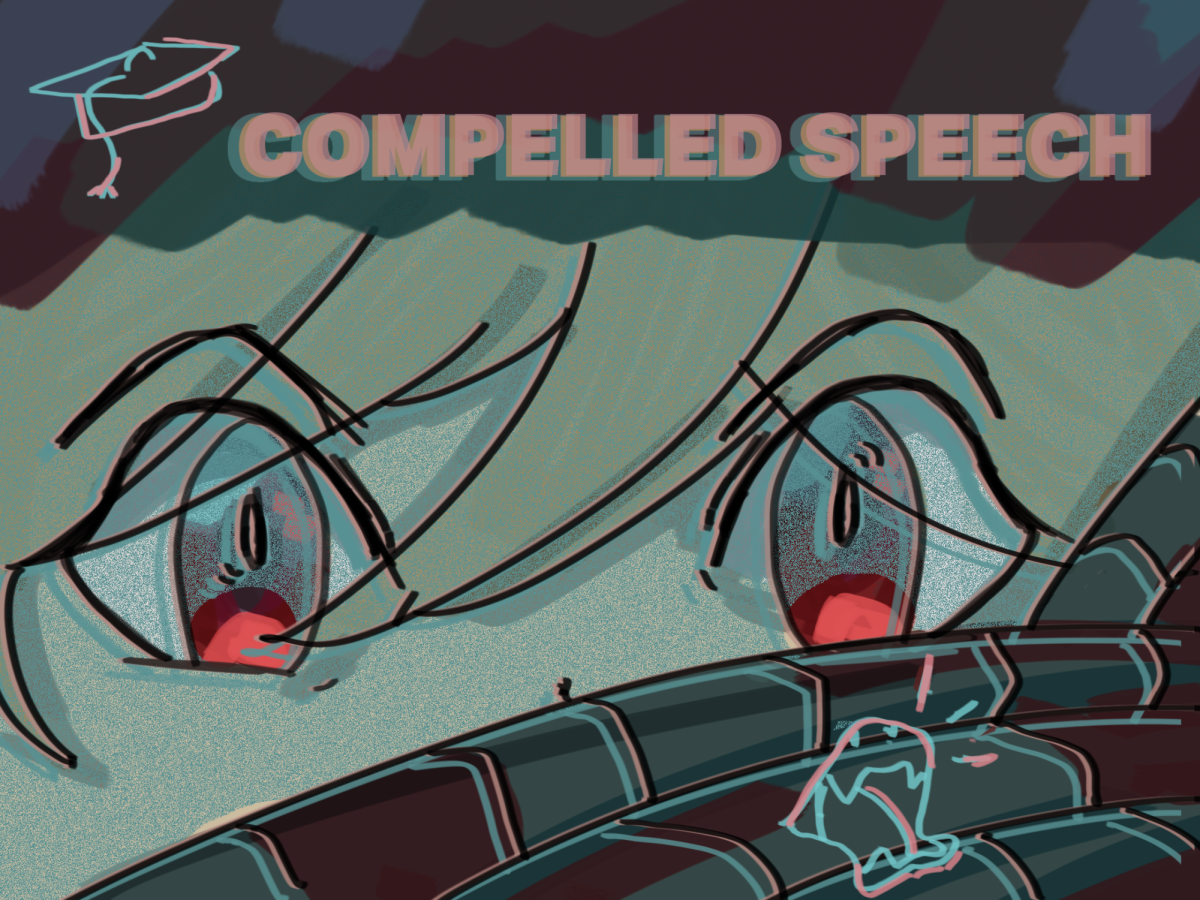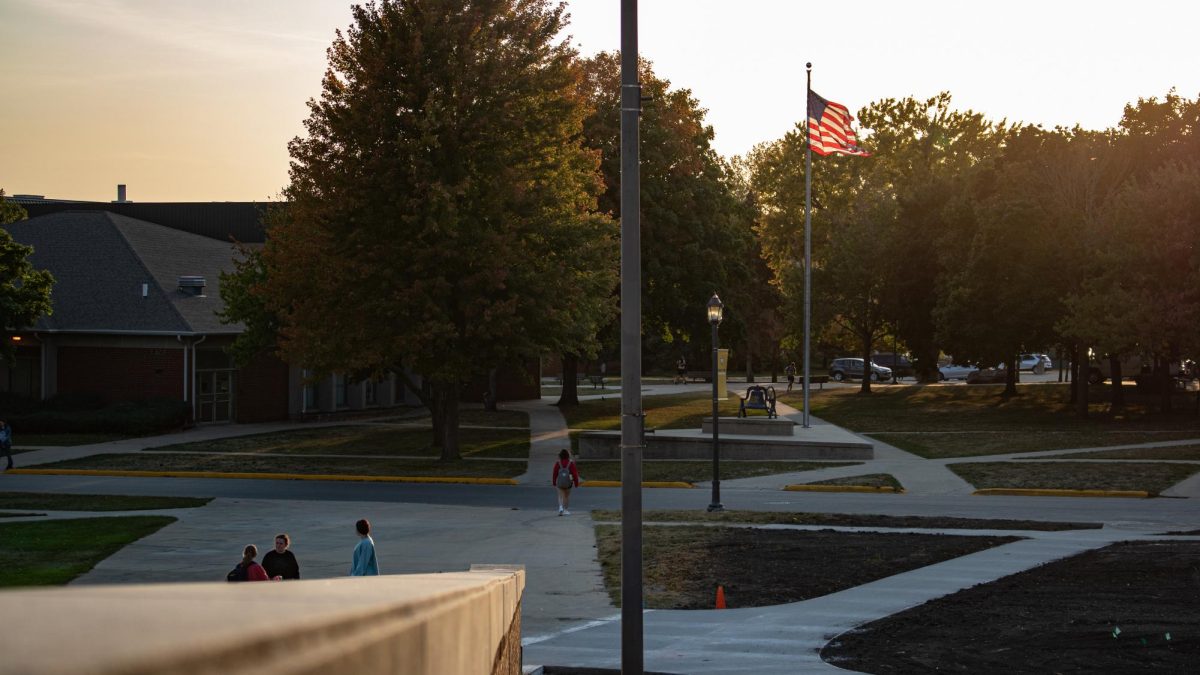Slavery, Jim Crow laws, The Trail of Tears, and racism are some of the many subjects K-12 students would likely learn in history classes throughout their career. Or so one would assume. Recently there have been many states looking to change this and even looking to create a specific “American Exceptionalism” history curriculum. History isn’t the only subject being targeted. There is a collective effort to restrict what educators can say. According to an article by NPR as of December 2023, 23 states and 52 public school districts have banned books. While these numbers have changed since December 2023, it still remains the same that at least 52 public school districts are now having limited conversations.
Iowa lawmakers have also introduced bills similar to those laws. House File 2329 was introduced in February but didn’t go further. The bill looked to create a very specific history curriculum that would require educators to teach certain topics more so than others or not teach a topic at all. House File 802 was signed into law in 2021 and banned the teaching of critical race theory in school districts, public universities, and state governmental agencies and entities.
While these laws and bills are looking to change school curriculum, they are also putting restrictions on what educators can and cannot say. These restrictions put on teachers’ speech brings into play the issue of compelled speech. Compelled speech is when the government attempts to force an individual person or group to support a specific expression. The act of compelled speech is made illegal by the First Amendment. I believe these bills and laws created are a violation of the First Amendment.
The freedom of speech is one of the five freedoms protected by the First Amendment. This means that no person can have their right to speech taken by the government and that no person can be punished if they refuse to spread messages the government approves. With that people also can’t be punished if they speak out against those government messages. Therefore, these laws are going against the First Amendment fundamentals because they are trying to force people to spread a specific government sanctioned message and punishing them if they refuse to do so.
In regard to compelled speech, it is crucial to look at the case of West Virginia State Board of Education v. Barnette. The case West Virginia V. Barnette is a court case from 1943 which focuses on the issue of compelled speech. This case is about a public school in West Virginia trying to force children who are Jehovah witness to stand for the Pledge of Allegiance even though it goes against their religion. The Court ruled that forcing students to stand for the Pledge of Alliance was unconstitutional and violates students’ First Amendment rights. “If there is any fixed star in our constitutional constellation, it is that no official, high or petty, can prescribe what shall be orthodox in politics, nationalism, religion, or other matters of opinion, or force citizens to confess by word or act their faith therein,” wrote Justice Robert H. Jackson who delivered the majority opinion of the Court.
The legislation not allowing teachers to talk about certain topics is the same as making the children stand during the Pledge of Allegiance. Even though standing during the flag is not actually spoken it is still symbolic speech. Therefore, these current pieces of legislation should be made unconstitutional because of the ruling of the precedent case West Virginia V. Barnette.
But there are still some individuals who argue that imposing limits on speech is for the betterment of the school. An opinion article from the Des Moines register by David Randall and John Hendrickson published February 13, 2024, argued that the changes to the history curriculum would make it better. Randall and Hendrickson wrote: “This measure also would prohibit the use of ‘action civics’ in both K-12 and in university curriculums. ‘Action civics’ is not actually learning about our nation’s past or government, but it has become a tool for the radical left to use taxpayer dollars and classroom time to teach vocational training in progressive activism.”
There are others out there who share this opinion with Randall and Hendrickson. A 2023 study by Gallup found that only 26% of Americans have confidence in public schools. Though most Americans don’t have faith in public schools it doesn’t mean that the government should take away educators First Amendment rights.
The case of Tinker v. Des Moines Independent School District is perhaps the most important historic statement on student free speech rights. In 1969 a few students wore arm bands to school to protest the Vietnam War; however, those students were then punished for violating the school board’s rule prohibiting political protest of any kind, and specifically outlawing the armbands themselves. This issue was then taken all the way to the Supreme Court where they ruled in favor of Tinker. This case provides support for the argument that teachers and students have the right to voice their opinion in public schools. “First Amendment rights, applied in light of the special characteristics of the school environment, are available to teachers and students. It can hardly be argued that either students or teachers shed their constitutional rights to freedom of speech or expression at the schoolhouse gate,” wrote Justice Abe Fortas who delivered the majority opinion of the Court.
After looking at compelled speech and the First Amendment it can be seen how these recent bills and laws are unconstitutional. What individuals need to remember is just because you don’t agree with someone doesn’t mean you need to silence them. When someone is trying to quiet you down is when you become your loudest.










